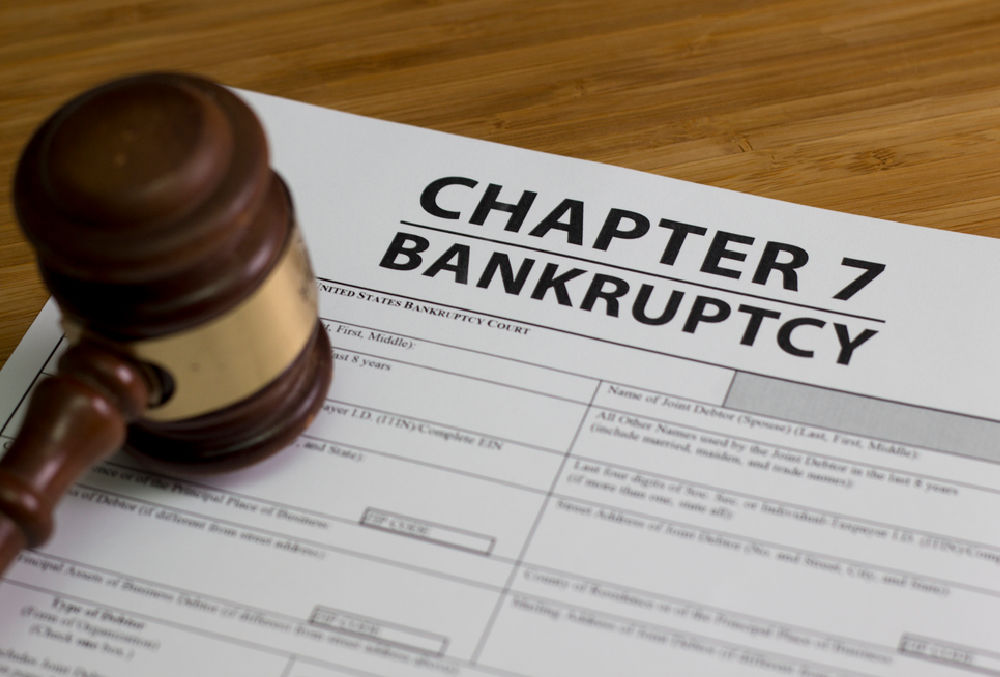If you’re struggling with overwhelming debts, Chapter 7 bankruptcy could be your best option. Chapter 7 is the most common form of bankruptcy for individuals and families, and it allows you to discharge many of your unsecured debts within only a few months. Before turning to this option, you need to know who can declare Chapter 7 bankruptcy, disqualifying factors, and the overall filing process.
What is Chapter 7 Bankruptcy?
Chapter 7 bankruptcy is a form of personal bankruptcy that liquidates filers’ assets to discharge qualifying unsecured debts. Unsecured debts are not backed by collateral, such as car payments and home mortgages. Although the idea of liquidating your assets may sound stressful and undesirable, most of those who declare Chapter 7 can retain all of their possessions after filing.
The debts that you’ll be able to discharge with Chapter 7 bankruptcy include:
- Medical debts
- Credit card debts
- Majority of auto accident claims
- Personal loans
- Business debts
- Past-due rent debts
- Past-due utility debts
- Majority of attorney fees
- Majority of civil court judgments
- Old tax penalties and some unpaid taxes
- Repossession deficiency charges
- Collection debts
- Benefit overpayments
Although those who declare Chapter 7 can discharge many unsecured debts, they cannot discharge:
- Some types of taxes
- Debts owed to a child or former spouse that occurred because of a divorce or legal separation, including alimony and child support
- Government agency fines and penalties
- Most student loans
- Attorney fees in child custody cases
- Court penalties and fines
- Personal injury damages owed to a victim because the plaintiff drove while intoxicated
- Money owed to certain types of cooperative housing organizations
- Money owed for some kinds of tax-advantaged retirement plans
Who Can Declare Chapter 7 Bankruptcy?
Whether or not you qualify for Chapter 7 bankruptcy will depend on your income. You determine your eligibility by considering your monthly income relative to the median income within your state. You calculate your monthly income by averaging your earnings in the last six months.
If you’re an individual considering filing, you’ll compare your monthly income to other individuals. But if you have a family, you’ll compare your income to other families of the same size. You qualify for Chapter 7 bankruptcy if your monthly average is equal to or less than the median in your state.
If your average monthly income is more than your state’s median, you’ll need to pass what’s known as a “means test.” This test determines whether you have disposable income at the end of each month to pay off your unsecured debts over five years. Suppose you have enough money left over each month after necessary expenses and debt payments. In that case, the bankruptcy court will recommend that you declare Chapter 13 bankruptcy, which consolidates your debts into a three-to-five-year repayment plan.
There are also other disqualifying factors for Chapter 7 bankruptcy, including:
- You’ve already received a Chapter 7 bankruptcy discharge in the last eight years
- You’ve declared Chapter 13 bankruptcy in the previous six years
What Do You Need to File Chapter 7 Bankruptcy?
The first step you need to take to declare Chapter 7 bankruptcy is to schedule a consultation with an experienced bankruptcy attorney. They will work with you to gather your financial records, including all of your debts, expenses, assets, and income streams. You’ll also need to supply the bankruptcy court with a list of creditors, an income statement, and copies of your tax records.
After gathering all necessary documents, you must undergo an approved credit counseling session within 180 days of filing. You’ll also need to supply the court with a certificate indicating that you’ve undergone credit counseling.
Finally, you’ll file a petition for Chapter 7 bankruptcy. You’re not required to have legal counsel, but representing yourself through the bankruptcy process can lead to costly, irreversible mistakes. It’s recommended that you hire a Chapter 7 bankruptcy attorney who can represent you and guide you through the process before filing.
What Happens After You File Chapter 7 Bankruptcy?
Filing Chapter 7 bankruptcy provides you with an automatic stay that prohibits creditors from being able to take any action to collect a debt against you, such as repossessions, wage garnishment, and legal action. Additionally, your creditors will not be allowed to contact you.
After you file, the bankruptcy court will appoint a trustee who’s in charge of reviewing your case and for non-protected assets. Your attorney will explain what you are allowed to keep through the Chapter 7 process and what might be at risk. Once again, most of those filing for Chapter 7 bankruptcy do not lose their any of their possessions. Additionally, your bankruptcy trustee will hold what is called a meeting of creditors, and you are required to attend this meeting. Creditors are allowed to attend, but they rarely do.
The Chapter 7 bankruptcy process usually takes three to four months; once you complete the process, you will discharge your qualifying debts.
Filing Bankruptcy Chapter 7 in Indiana? Contact Sawin & Shea Bankruptcy Attorneys
If you plan on filing for Chapter 7 bankruptcy, you need experienced Indiana bankruptcy attorneys who can represent you and ensure you’re on the right track to becoming debt free. For experienced bankruptcy support you can count on, contact the attorneys at Sawin & Shea, LLC at 317-759-1483, or contact us online here for a FREE case consultation.



